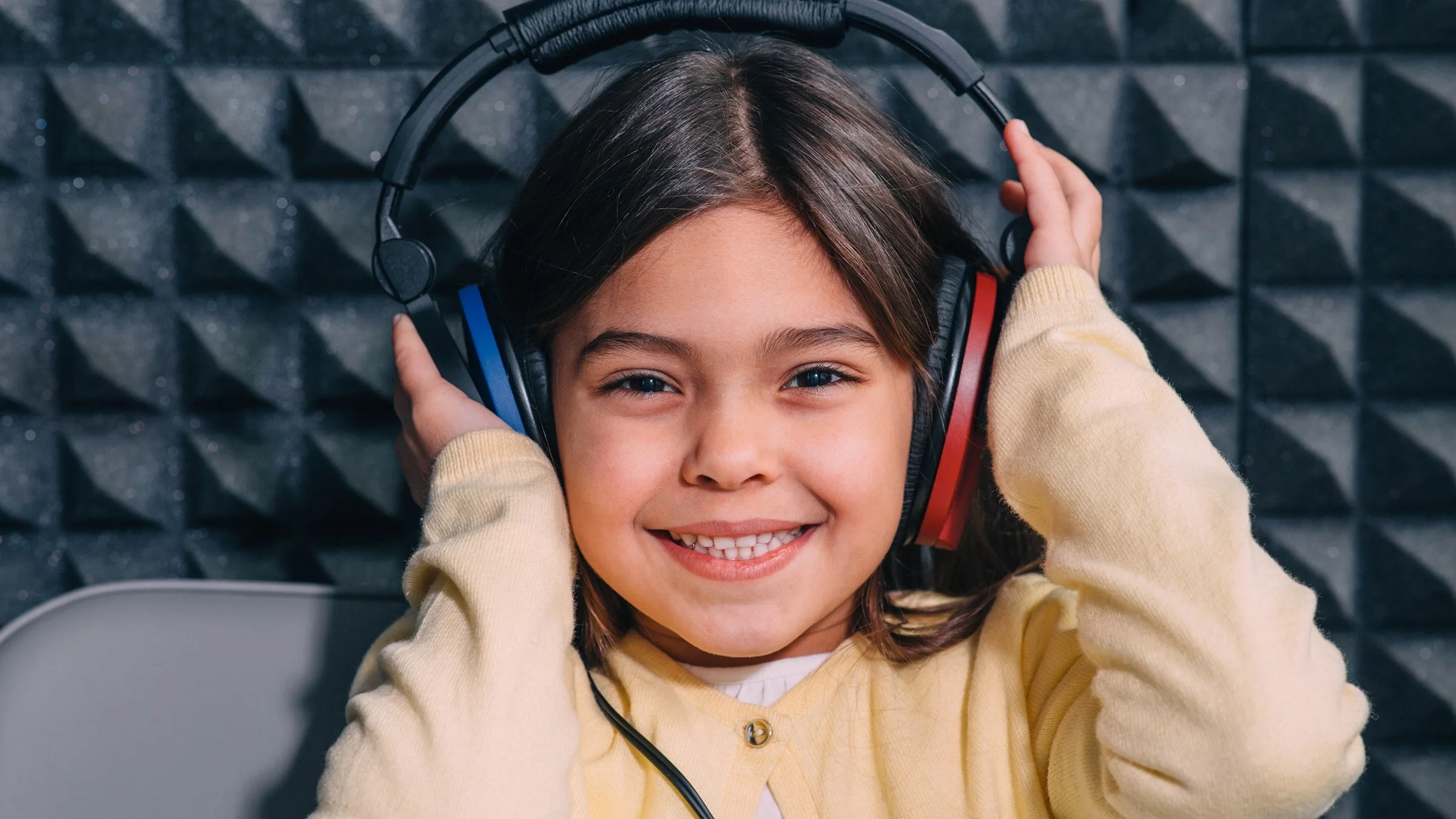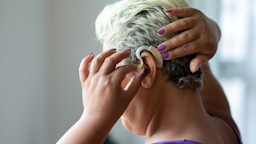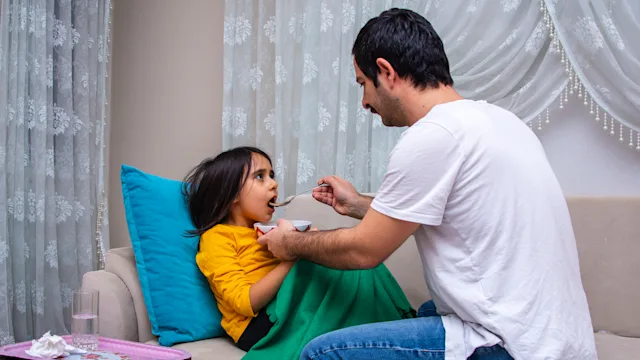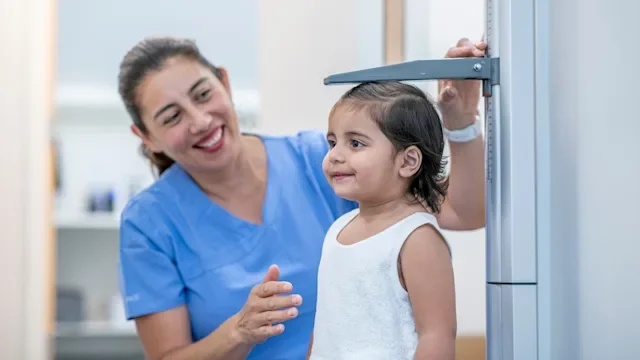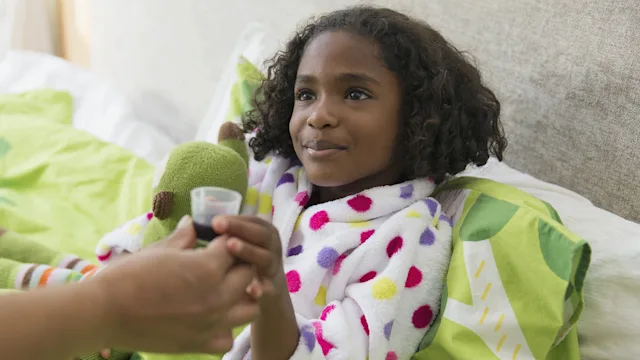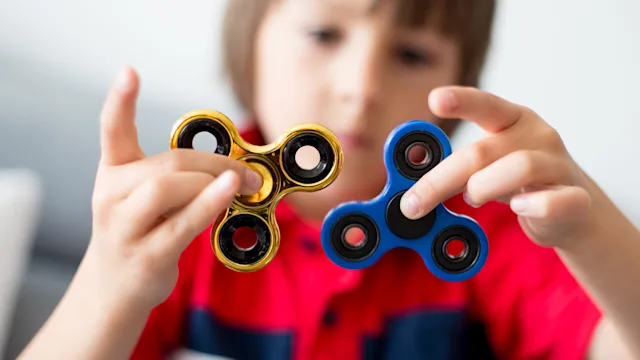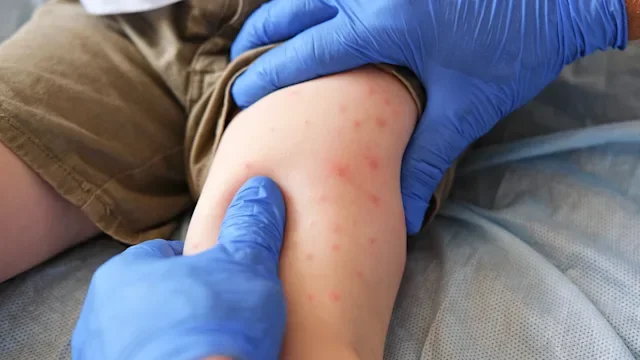Key takeaways:
Hearing loss can develop at any age.
Children should have routine hearing screens throughout their childhood and teen years.
Some children are at higher risk for developing hearing loss and may need pediatric hearing tests with an audiologist.
It can be hard to get your child to listen to you. Sometimes they’re distracted, and other times they just don’t want to listen. But maybe you’ve stopped and wondered if they aren’t responding because they can’t hear you.
There are two types of hearing loss — conductive hearing loss and sensorineural hearing loss. Both types can develop at any age. Children can also be born with impaired hearing, this happens in about 3 out of every 1,000 newborns. And some children are at higher risk of developing hearing loss.
Let's take a look at when you should schedule hearing checks for your child and what you should do if you think your child might not be hearing well.
Search and compare options
When should my child’s hearing be tested?
There are different times when you should schedule a hearing test for your child, including:
As part of their regular well-child care (hearing screen)
If they have a condition that puts them at greater risk for hearing loss
If there’s a concern about their ability to hear
What is a routine hearing screening?
A hearing screening is a pediatric hearing test that checks for signs of hearing loss. Healthcare providers do these tests in their office as part of yearly checkups.
The American Academy of Pediatrics recommends that all children have a hearing screen:
Within the first month of life, as part of your child’s newborn screening (if they were born in a hospital)
At their checkups when they’re 4, 5, and 6 years old
Twice during their grade-school years (usually during checkups at age 8 and 10)
Once as a preteen/young teen (between 11 and 14 years old)
Once as a teenager (between 15 and 17 years old)
Once as an older teen/young adult (between 18 and 21 years old)
At other checkups your child’s healthcare provider may ask you if you have concerns about your child’s ability to hear. If you do have concerns, they will do a pediatric hearing test at that checkup, too.
Read more like this
Explore these related articles, suggested for readers like you.
What medical conditions can affect how my child hears?
Some medical conditions can affect hearing, including:
Trauma to the eardrum or brain
Meningitis
Exposure to certain infections before birth
Use of certain kinds of antibiotics
Conditions that affect the shape of the the ears, face, and head (like cleft palate)
Some neurologic and genetic conditions
If your child has one of these conditions, their healthcare provider may refer your child to an audiologist.
An audiologist can fully evaluate your child’s hearing. They use more precise tools for pediatric hearing tests. Their tools can check hearing in children of all ages, even young babies.
When should I be concerned about my child’s hearing?
As your child’s caregiver, you know your child best. You spend the most time with them and you’ll be able to notice differences in their behavior. When a child has trouble hearing you may notice that they:
Don’t talk as early as expected (late talking)
Have speech that’s hard to understand
Can’t follow directions
Ask you to repeat or clarify things often
If you’re ever concerned about your child’s hearing, talk to your child’s healthcare provider. They can perform a hearing screening in their office or order more complete pediatric hearing tests with an audiologist. Hearing tests aren’t painful and don’t take much time to complete. And they can put you at ease regarding your child’s hearing.
What are the various types of hearing tests?
There are many different types of pediatric hearing tests. Some ones are:
Otoacoustic emissions
During an otoacoustic emission test (OAE), your child wears special earphones that play sounds. A special microphone in the earphones measures how the different parts of the ear respond to the sound. The OAE is an automatic test — meaning your child doesn’t have to participate for it to work. The OAE is the most common method providers use to test hearing in newborns. They may also use it for hearing screens in young children.
Audiometry
Audiometry is the type of hearing test most people are familiar with. Your child wears headphones or earbuds and raises their hand when they hear a sound. The machine plays different sounds to look for high frequency and low frequency hearing loss. Most healthcare providers use some type of audiometer to perform hearing screens.
Audiologists use more specialized audiometers that test the ability to hear more frequencies and generate audiogram reports. Audiologists can also use visual reinforcement audiometry and conditioned play audiometry, special types of audiometry for younger children.
Auditory brainstem response
An auditory brainstem response (ABR) tests how the inner ear communicates with the brain. During this test a provider places electrodes on your child’s head and earlobes. The electrodes are like the ones in an electrocardiogram. Your child will also wear headphones or earbuds. Then a machine plays a sound through the headphones and records how their brain responds to the sound using the electrodes.
An ABR isn’t painful, but some young infants and children may be curious and tempted to pull off the electrodes. Like an OAE, an ABR is an automatic test. It’s a popular way to test hearing in infants and children who can’t complete an audiometry test.
Tympanometry
A tympanometry test is different from the others because it only looks at how well the middle ear moves. Your child will wear a small earbud. A small puff of air goes through the earbud and a machine records how well the middle ear moves when the air hits it. This test is helpful to look for conductive hearing loss.
The bottom line
Children should have their hearing checked when they’re first born and throughout their childhood and teenage years. Your child’s healthcare provider can perform a hearing screen during your child’s yearly checkup. Some medical conditions can affect a child’s hearing. If your child has one of these conditions, your child may need more specialized pediatric hearing tests. An audiologist usually does these tests.

Why trust our experts?


References
American Academy of Pediatrics. (2021). Recommendations for preventive pediatric health care.
American Speech-Language-Hearing Association. (n.d.). Auditory brainstem response (ABR).
American Speech-Language-Hearing Association. (n.d.). Otoacoustic emissions (OAEs).
American Speech-Language-Hearing Association. (n.d.). Pure-tone testing.
American Speech-Language-Hearing Association. (n.d.). Tests of the middle ear.
Centers for Disease Control and Prevention. (2021). What is hearing loss in children?
Fligor, B. J., et al. (2019). Pediatric ototoxicity: Current trends and management. Seminars in Hearing.
Lawrensia, S., et al. (2021). Newborn hearing screening. StatPearls.
National Institute on Deafness and Other Communication Disorders. (2021). Quick statistics about hearing.

